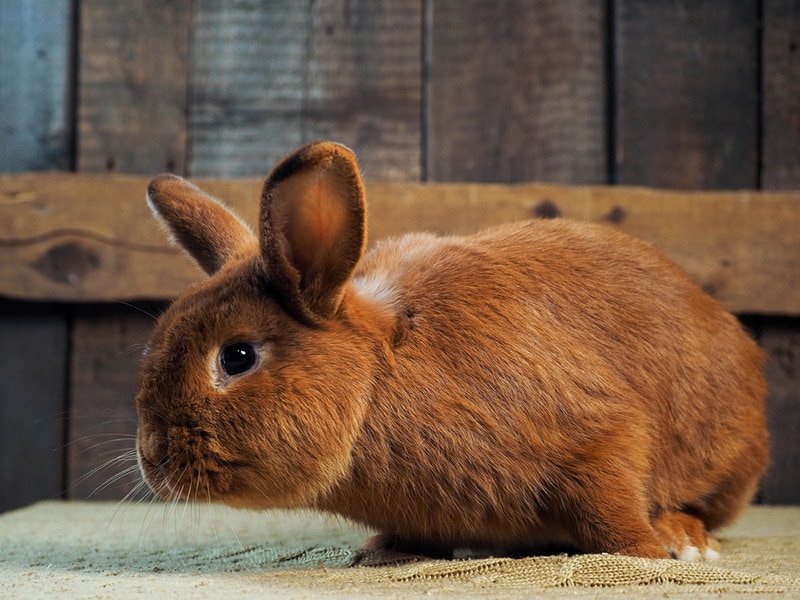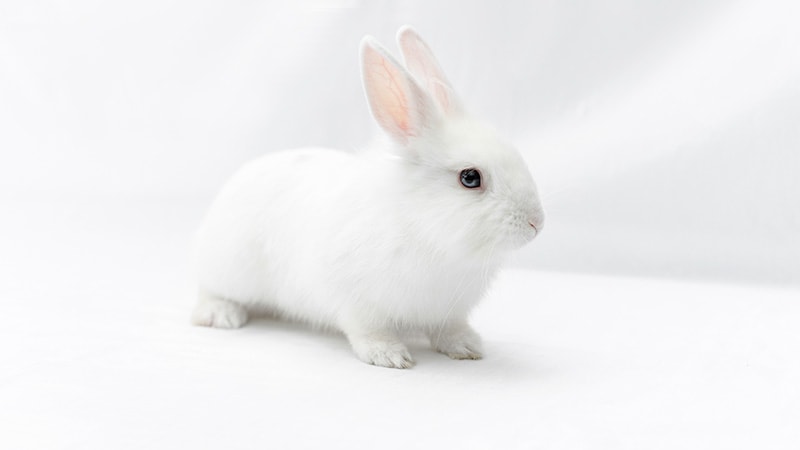Why Is My Rabbit Sneezing? 6 Vet-Approved Reasons
Updated on
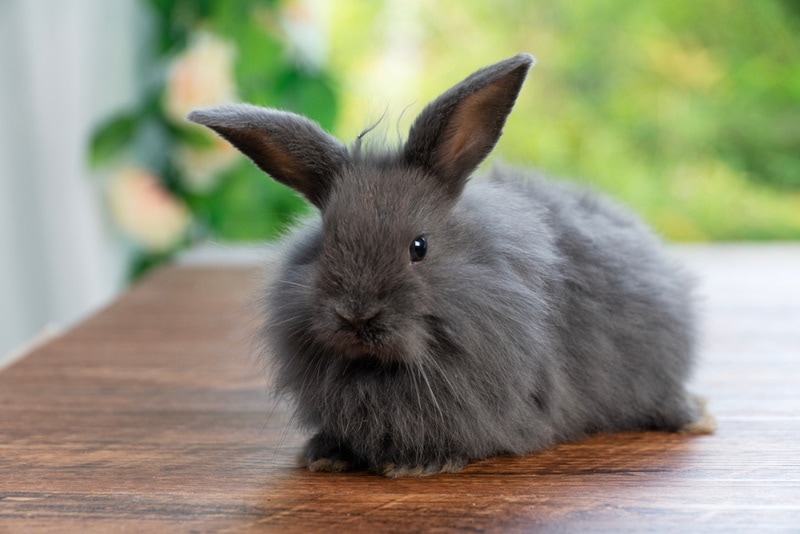
About 1.53 million American households 1 have at least one pet rabbit. Rabbits are a prey species and, thus, instinctively hide weaknesses like illnesses. It makes them a target for predators. However, it’s hard not to notice an animal sneezing.
Sneezing serves several vital purposes. It is one way the body protects itself from irritants before they can do more harm. It’s a rapid nervous response that protects an animal. So, if your rabbit is sneezing is it something to be concerned about? Unless it’s anything other than a very occasional sneeze, with no signs such as a discharge from the nose, you must get your rabbit checked out by your vet.
Let’s check out some of the potential reasons for sneezing below.
The 6 Vet-Approved Reasons Why Your Rabbit Is Sneezing
1. Snuffles
Sneezing can be a sign of a respiratory infection. One of the most common is snuffles 2 or a stuffy nose. Snuffles is a bacterial infection most commonly caused by Pasteurella multocida.
Rabbits with this condition will sneeze and have mucus from their nose, as well as other signs such as runny eyes, wheezing, lethargy and a reduced appetite. They often have dirty front paws whether they have wiped their nose. Rabbits with dental disease are more prone to developing snuffles.
This infection is serious and it is important that you make an appointment with your vet to get treatment straight away. It is also highly contagious to other rabbits.
2. Dust
Many animals, like rabbits, spend their days exploring the world and looking for food. Once in a while, their noses draw in dust or other microscopic debris that irritates their nasal passages. The result is a sneeze. Foreign bodies are a potential threat, especially if they’ve gained entry through an animal’s nose. The instinctive response is to expel it instead of a wait-and-see approach.
However, it only works while an animal is awake. Rabbits—and other animals, including people—cannot sneeze while they are asleep.
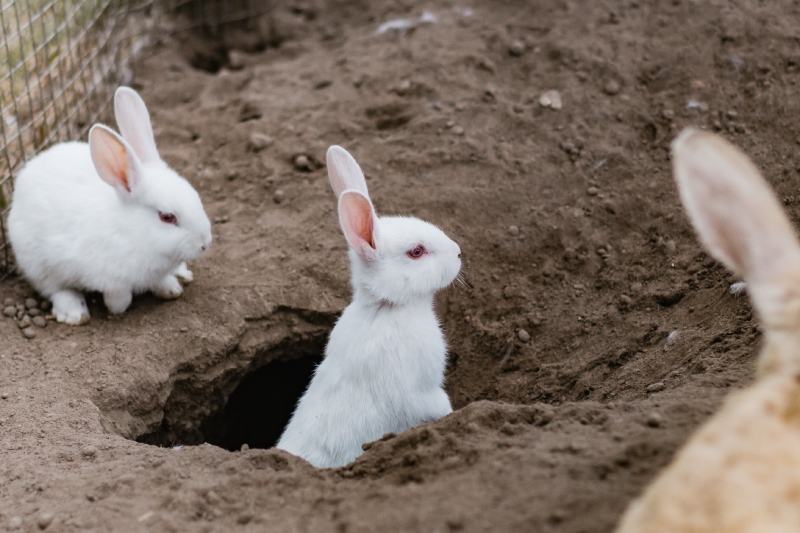
3. Nasal foreign bodies
The typical history of a nasal foreign body such as a piece of hay or bedding or grass seeds stuck up the nose is sudden sneezing and a discharge, usually from one nostril. Occasionally an abscess will form over the nose.
4. Scented Litter or Bedding
Rabbits are selective feeders. It’s not surprising they have a keen smell to help them with this task. Lagomorphs have a better-developed sense than humans. If you think you have a good nose, consider these facts. People have about 5 million olfactory receptors 3; bunnies have 100 million. It’s safe to say that these animals are more sensitive than we are to scented products.
The olfactory overload could undoubtedly trigger sneezing in your pet. Even if scented products seem pleasant to you, they may have the opposite effect on your rabbit.
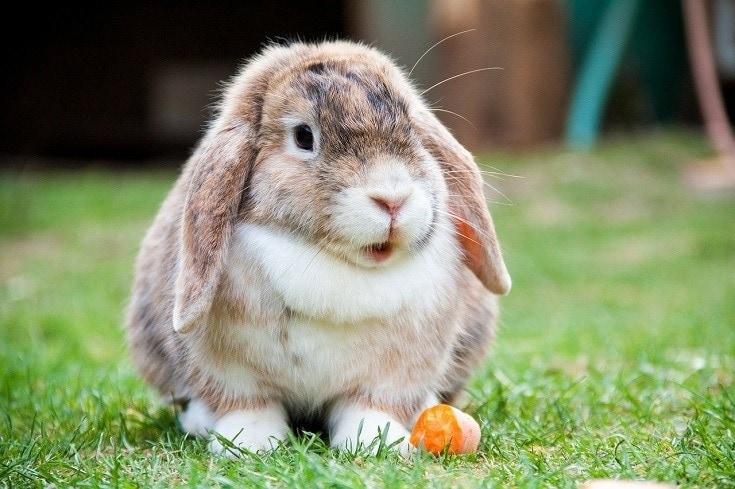
5. Allergies
An allergy is an immune response an animal has to something that the body perceives as potentially dangerous. Rabbits can experience these conditions just like dogs, cats, or even people but they are uncommon and infection is a more likely cause of sneezing and nasal discharge.
- Nasal discharge
- Red eyes
- Rubbing its face
- Sneezing
6. Poor Air Quality
Poor air quality can make you sneeze, as well as your rabbit. Soot and smoke from wildfires are common causes, even if they are occurring far from where you live. The US Air Quality Index (AQI) provides a quantitative way of measuring this parameter. Once the figure exceeds 51, some people may feel the effects. It’s not a stretch to assume it can also affect your bunny who are sensitive creatures.
The AQI looks at the major pollutants that may cause you and your rabbit to sneeze. Many are by-products of wildfires, including particulates. Passive smoking or inhaling the by-products of vaping can also have the same effect, this is generally more of a problem in house rabbits.
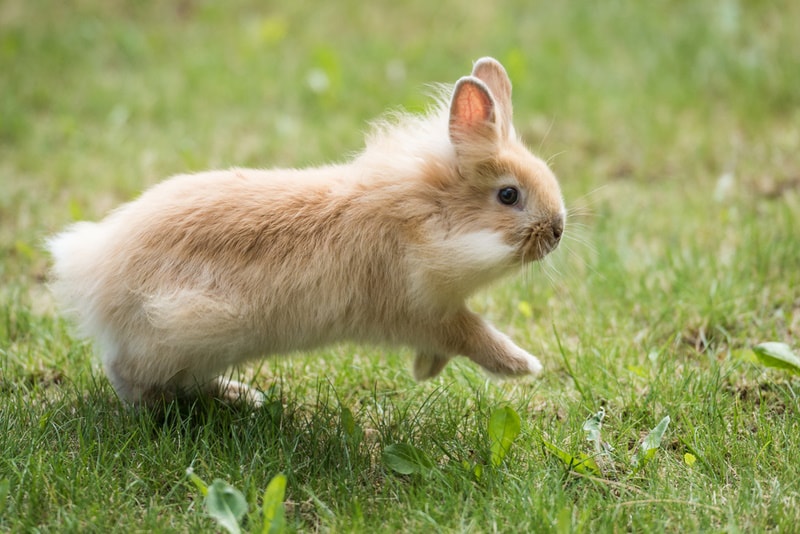
When to Seek Veterinary Advice
Although sneezing can be a benign sign it can also be a sign of serious health concerns such as a respiratory tract infection. Rabbits are prey species, which means they often hide signs of illness until they are seriously unwell. So if in any doubt, it is always best to get your rabbit to the vet for a checkover as soon as possible. This is especially important if the sneezing is accompanied by other signs such as a reduced appetite or nasal discharge.
Conclusion
Sneezing is an animal’s way to rid itself of an irritant, allergen, or other potential threat. It can be a sign of potentially serious respiratory conditions that warrant a vet exam. Owning a pet involves monitoring its health for red flags that signal more serious attention. Frequent sneezing is one of those signs.
Featured Image Credit: Kaewmanee-jiangsihui-Shutterstock



